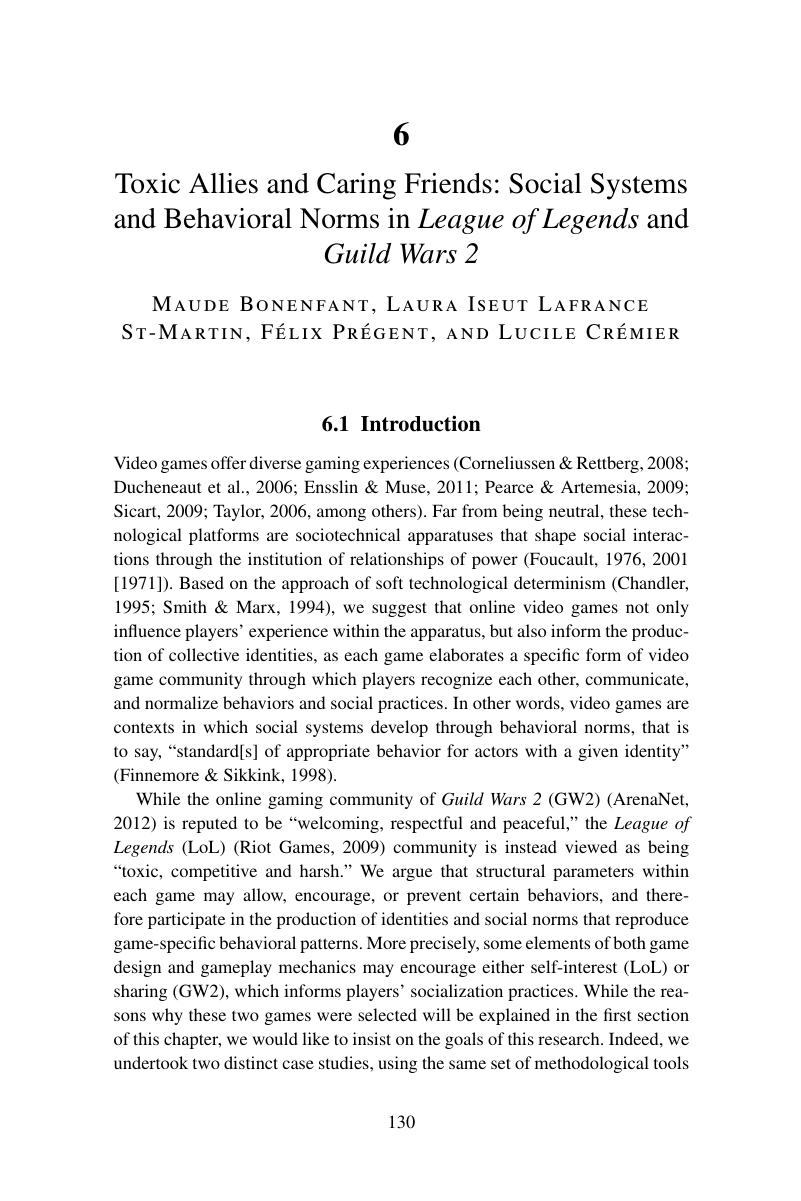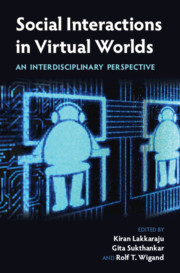Book contents
- Social Interactions in Virtual Worlds
- Social Interactions in Virtual Worlds
- Copyright page
- Contents
- Contributors
- Introduction
- Part I Individual Behaviors and Dyadic Relationships
- Part II Groups: Norms, Leadership, and Virtual Organizations
- 5 Virtual Team Communication Norms: Modeling the Mediating Effects of Relational Trust, Presence, and Identity on Conversational Interactivity, Openness, and Satisfaction
- 6 Toxic Allies and Caring Friends: Social Systems and Behavioral Norms in League of Legends and Guild Wars 2
- 7 Management (Im)Material: Negotiating Leadership in Virtual Worlds
- 8 Virtual Organization and Online Games
- 9 Virtual Economic Experiments
- Part III Understanding Culture with Games
- Part IV Techniques for Analyzing Game Data
- References
6 - Toxic Allies and Caring Friends: Social Systems and Behavioral Norms in League of Legends and Guild Wars 2
from Part II - Groups: Norms, Leadership, and Virtual Organizations
Published online by Cambridge University Press: 15 June 2018
- Social Interactions in Virtual Worlds
- Social Interactions in Virtual Worlds
- Copyright page
- Contents
- Contributors
- Introduction
- Part I Individual Behaviors and Dyadic Relationships
- Part II Groups: Norms, Leadership, and Virtual Organizations
- 5 Virtual Team Communication Norms: Modeling the Mediating Effects of Relational Trust, Presence, and Identity on Conversational Interactivity, Openness, and Satisfaction
- 6 Toxic Allies and Caring Friends: Social Systems and Behavioral Norms in League of Legends and Guild Wars 2
- 7 Management (Im)Material: Negotiating Leadership in Virtual Worlds
- 8 Virtual Organization and Online Games
- 9 Virtual Economic Experiments
- Part III Understanding Culture with Games
- Part IV Techniques for Analyzing Game Data
- References
Summary

- Type
- Chapter
- Information
- Social Interactions in Virtual WorldsAn Interdisciplinary Perspective, pp. 130 - 161Publisher: Cambridge University PressPrint publication year: 2018
References
- 1
- Cited by



